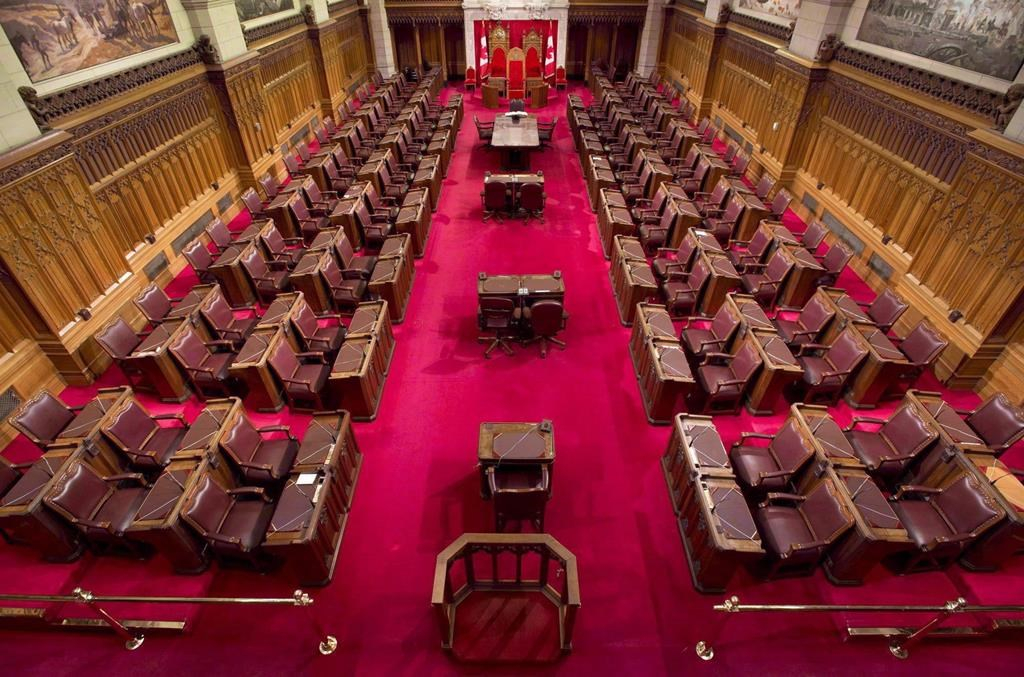OTTAWA — The Trudeau government unveiled Thursday its plan for transforming the Senate into an independent, non-partisan chamber —the first major reform to the scandal-plagued upper house in 50 years and arguably the biggest change since its inception in 1867.
Democratic Institutions Minister Maryam Monsef said the government is creating an arm's-length advisory board to consult widely and recommend to the prime minister a short list of five merit-based nominees to fill each vacancy in the Senate.
She also released the criteria the advisory board will use to assess potential candidates. Among other things, they will need to have a record of achievement and public service, show integrity, understand the role of the Senate and demonstrate an ability to contribute to the work of the Senate in an independent and non-partisan manner. However, past partisan activities will not automatically disqualify someone from being nominated.
"I believe this new process will immediately begin to restore the confidence of Canadians in an institution that plays a vital role in our democracy," Monsef said.
The advisory board will consist of three federally appointed members and two ad-hoc members from the province in which each vacancy occurs. Monsef said the members will be named by the end of the year.
Initially, the board will be tasked with recommending nominees to fill five vacancies in the provinces that are currently most under-represented in the Senate: two from Ontario, two from Manitoba and one from Quebec. Those are to be filled by early next year.
Another 17 vacancies are to be filled by the end of 2016.
Government House leader Dominic LeBlanc said one of the first five new senators will be named as the government's representative in the Senate. That role, heretofore known as the government leader in the Senate, is necessary under existing Senate rules in order to introduce government bills in the chamber and shepherd them through the legislative process.
All the rules governing the Senate are geared to having a governing party caucus and an opposition party caucus. It will be up to the Senate itself to eventually rewrite its rules to reflect the more non-partisan nature of the chamber envisioned by Prime Minister Justin Trudeau, LeBlanc said.
In the meantime, however, Trudeau has appointed Sen. George Furey, a Liberal, to be the new speaker. Furey replaces Conservative Leo Housakos.
Trudeau started the process toward a less partisan Senate two years ago when he removed all senators, including Furey, from the Liberal caucus. They have been sitting as independent Liberals since then.
Trudeau maintains that partisanship has eroded the Senate's intended role as an independent chamber of sober second thought. And at least two Conservative senators seem to agree with him.
Sen. Jacques Demers announced Thursday that he is quitting the Conservative caucus — the second Tory senator in two weeks to decide to sit as an independent. He's following the lead of Sen. John Wallace.
Trudeau's plan represents a significant overhaul of the Senate after decades of failed efforts to reform the much maligned chamber. The last major reform was in 1965, when mandatory retirement at age 75 was imposed on senators, who had been given lifetime appointments until then.
Almost from the moment it was created, there have been moves to reform the Senate, including campaigns to transform it into an elected chamber or into a house of the provinces or to abolish it altogether. None have ever managed to achieve a consensus among the provinces.
The beauty of Trudeau's plan, Monsef said, is that it doesn't require a constitutional amendment and, hence, no provincial consent is necessary. Provincial governments will be consulted on the provincial members of the advisory board but their participation is not necessary to proceed.
British Columbia Premier Christy Clark announced immediately that her government won't participate in the process.
"Today's changes do not address what's been wrong with the Senate since the beginning," Clark said in a statement. "It has never been designed to represent British Columbians or our interests at the national level."
Clark said the Senate should be "fixed or folded."
Joan Bryden, The Canadian Press


Comments